Do you have a Localization strategy? or Localization goals?
My first decade in the localization industry was always a bit of a mixed bag.
Firstly because of my technical background (I am a Computer Engineer), and I ended up working in a "words" industry. Grammar and the art of translating ideas from one language to another were not my things. Later on, when I started to lead teams, managing team dynamics was not my strong point either. The same happened when my managers started to make me responsible for delivering the strategy of the Localization team.
The first iterations of the strategy were a real pain in the ass, and I did not understand very well the differences between all these terms; terms that seemed to me to be synonymous, strategies, tactics, results, objectives.....
Very confusing.
And the truth is that I was struggling to find feedback or learning resources to help me understand the differences between, for example, what is a Localization strategy or Localization goals.
Since that first part of my career, I have evolved a lot in this task, mainly due to the combination of a) having to do this goal-setting exercise every year and b) the high volume of books on business strategy available on the market today.
While working as a professional in the localization industry, I've seen too many people confuse strategy with goal setting.
Me included. They are not the same thing, and it's essential to understand their differences. In the following paragraphs, I will explain the differences between them so that you can determine if you have a Localization Strategy or if actually what you have are Localization goals.
Strategy is an exercise in problem-solving
A good strategy can define a problem, name the problem, and the challenge.
Once identified, the strategy must include how we will overcome the problem.
Goals are the outcome of the strategy.
While the strategy focuses more on how we will do something, the goal focuses more on what we do.
A strategy is an approach you take to achieve a goal.
Although the strategy is the most important thing when defining the future of a Globalization/Localization team. The goals, in a way, are what help us to stay focused and motivated in the short term. The strategy looks ahead X years and answers questions about where we want to be and why we want to be there. It is an exercise of imagining a better future and designing steps to reach it. .... Goals, on the other hand, keep us a little more grounded because through regular monitoring, they help us determine whether we are moving in the right direction or not.
The danger of "strategic" brainstorming sessions
I don't know if you have had the opportunity to be in meetings to create a draft "departmental strategy for the coming year". They are a curious situation. And they run more or less like this…
A group sits down to brainstorm strategies. They brainstorm items that would benefit the Localization department and that are good things to embrace: "Reduce errors related to truncated texts by half," "Increase the price per word in the transcreation area by 15%," or "we need to make automated scripts so that the LQA phase doesn't take more than two weeks".
These are all great ideas, but they are not the strategy; they are goals; and it is very, very easy for us to end up with Localization goals but to believe that we have a strategy.
A goal is a broad primary outcome.
Strategy is about how resources should be allocated to accomplish whatever it is we want to accomplish
Create your strategy by mastering these two variables
When creating a good strategy, it is good to simplify concepts, ideas and steps.
Through the work I have been doing over the years, I have been able to detect that the strategy is good if it includes these 2 things
1-. The challenge we face
2.- Make predictions about the future
The challenge, as I explained above, is our ability to name the problem we face, that is the first step, and until the problem we face is clearly defined, it isn't very smart to consider moving forward with our strategy.
Predictions about the future are also of vital importance in defining strategy.
The key here is to be able to read the current situation of the market you are operating (if you are on the buyer side) or get a good understanding of the Localization market if you are on the LSP side, and from that understanding, make a guess of the macro trends that are at play and extrapolate them into the
future.
Examples of these trends might be something like for example ….
eLearning will grow
AI augmentation will grow
New content channels will grow
Multilingual support will grow
Video streaming/subtitle business will grow
or any trend that you believe will occur…
And based on these trends and your situation in your company and in your sector, you can now design an appropriate strategy to achieve the future we envisage.
Summary
There's no way to prove a strategy is the "best" or "right" one.
Every strategy is different and is a judgment of a situation to shape the best path forward.
But while it is impossible to determine which is the best strategy, it is possible to determine whether we have goals or a strategy.
Do you agree with my definition of strategy and goals?
Have you seen people get into trouble confusing strategy with goals in your companies?
@yolocalizo
Do you have advice on how Localization Leaders can best establish strategic Localization direction for their teams, and their companies?
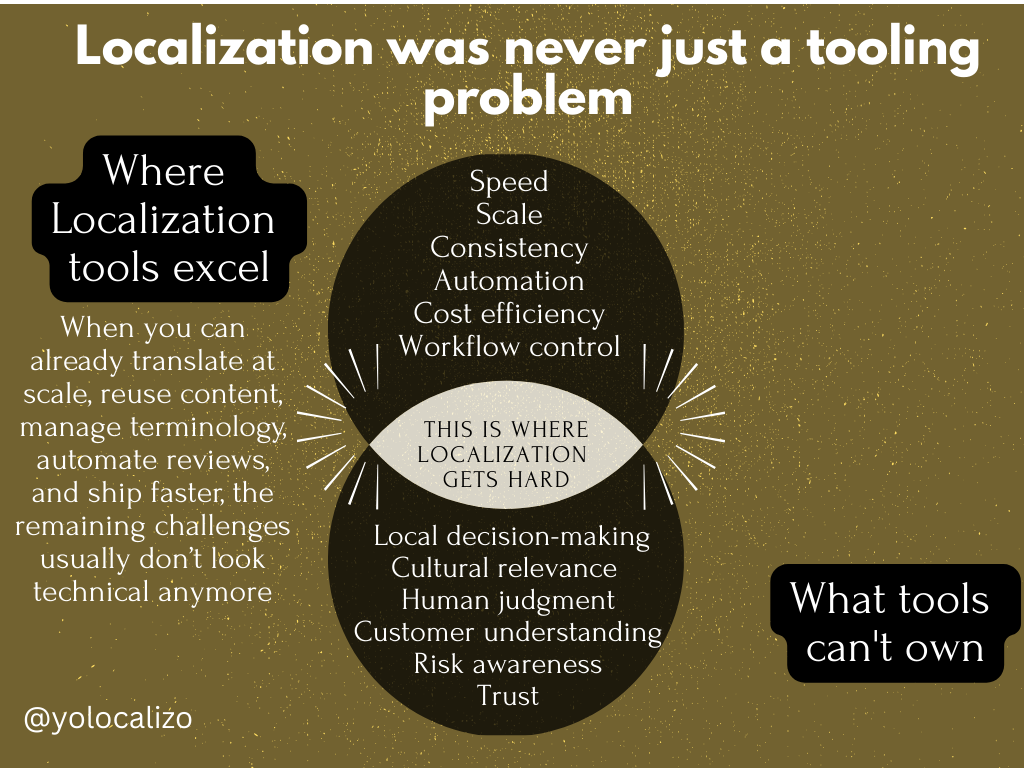
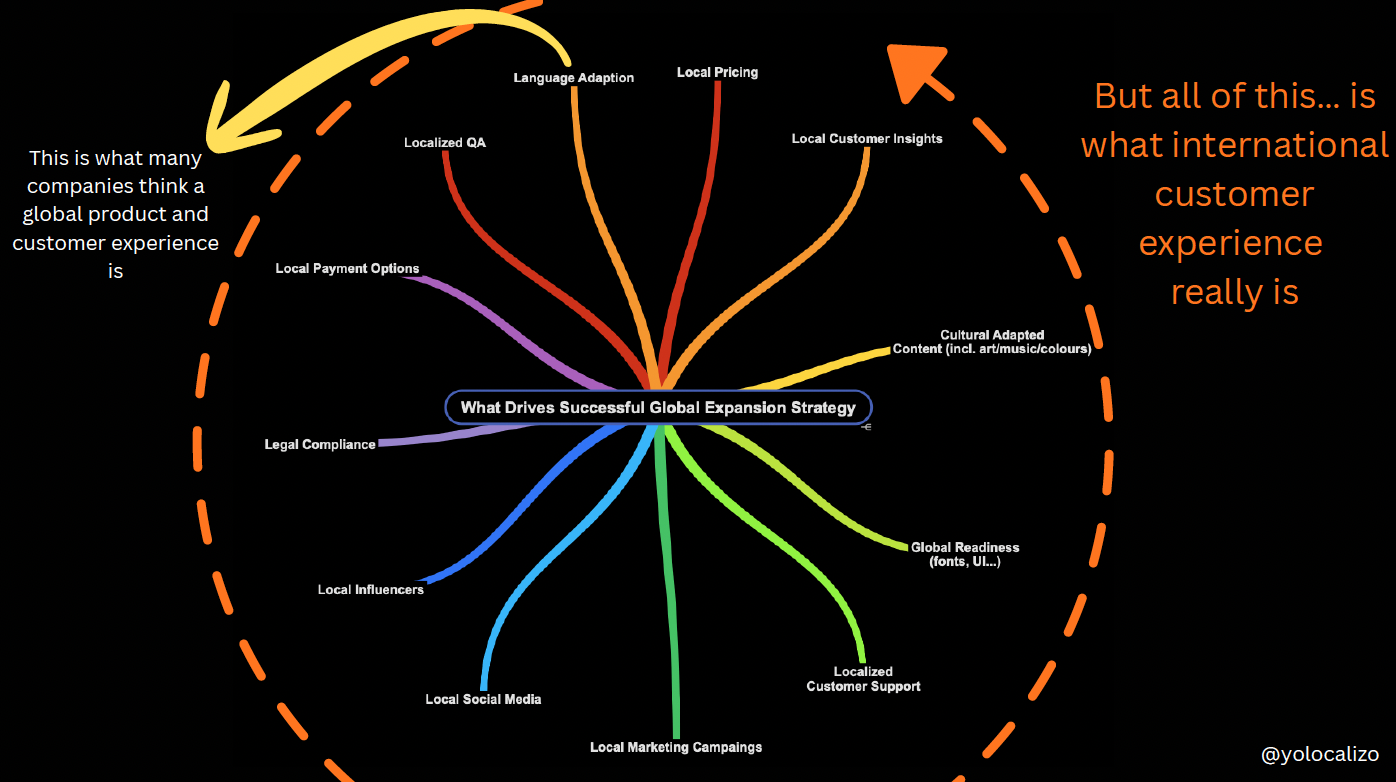
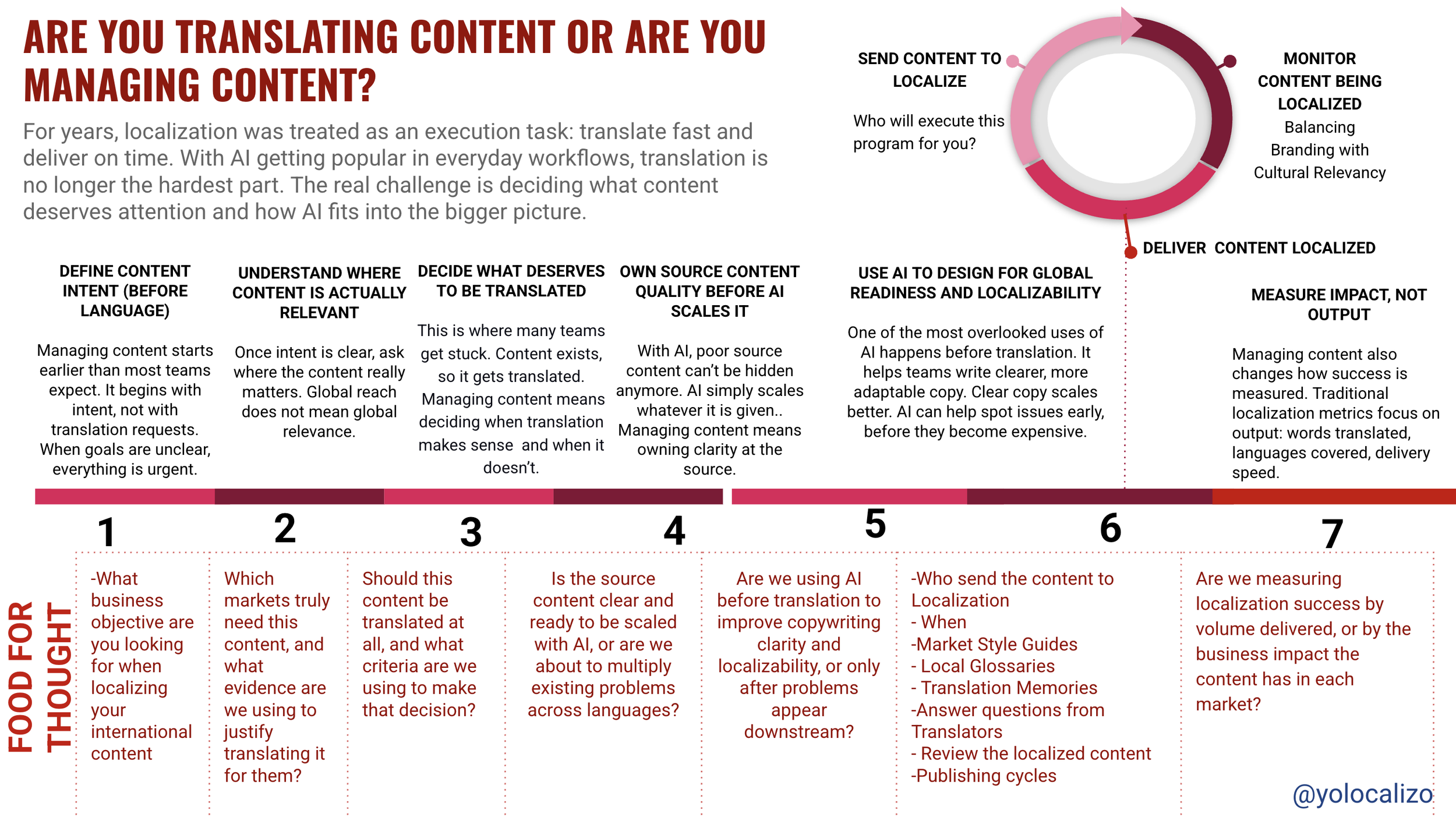

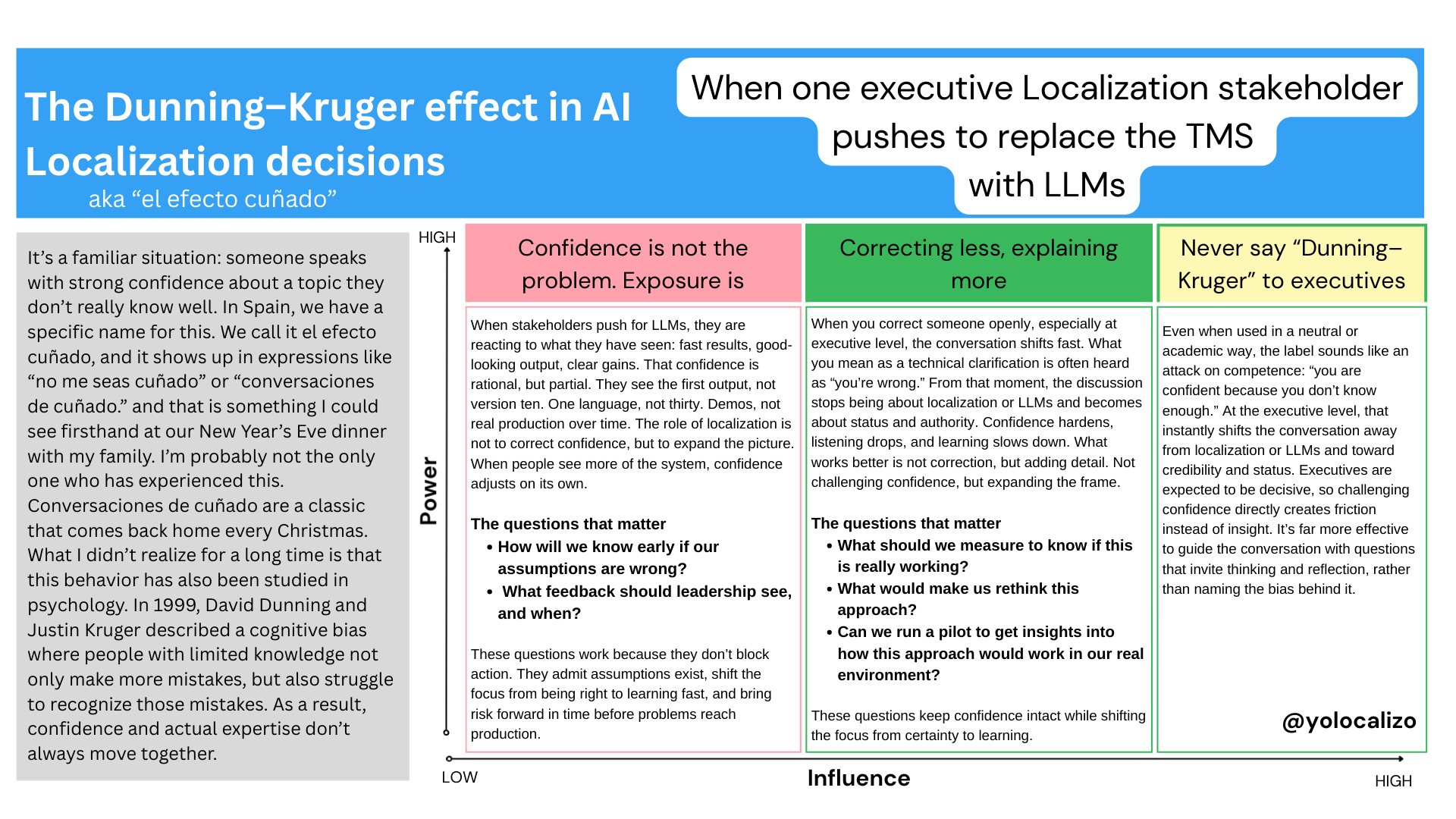


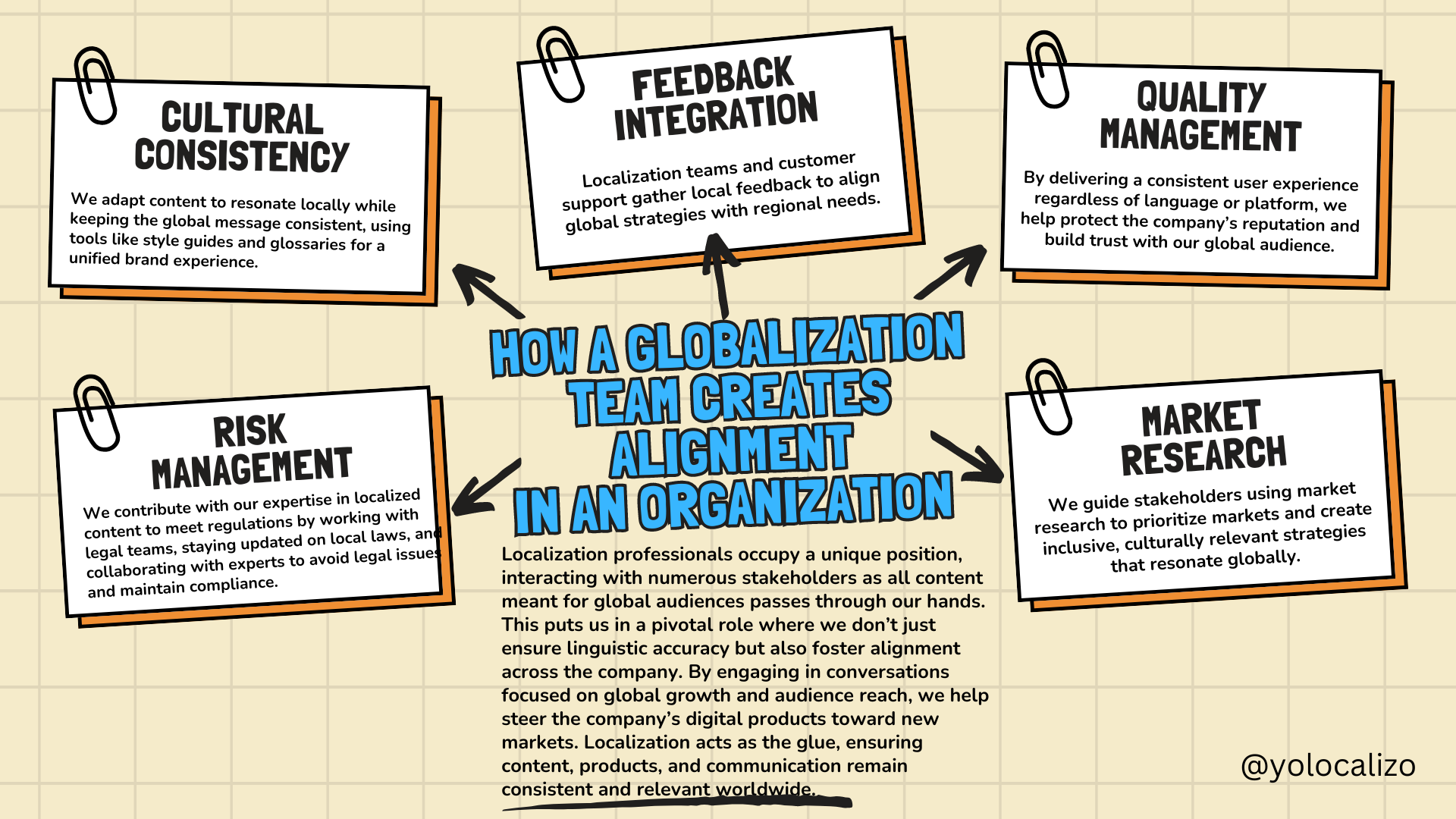
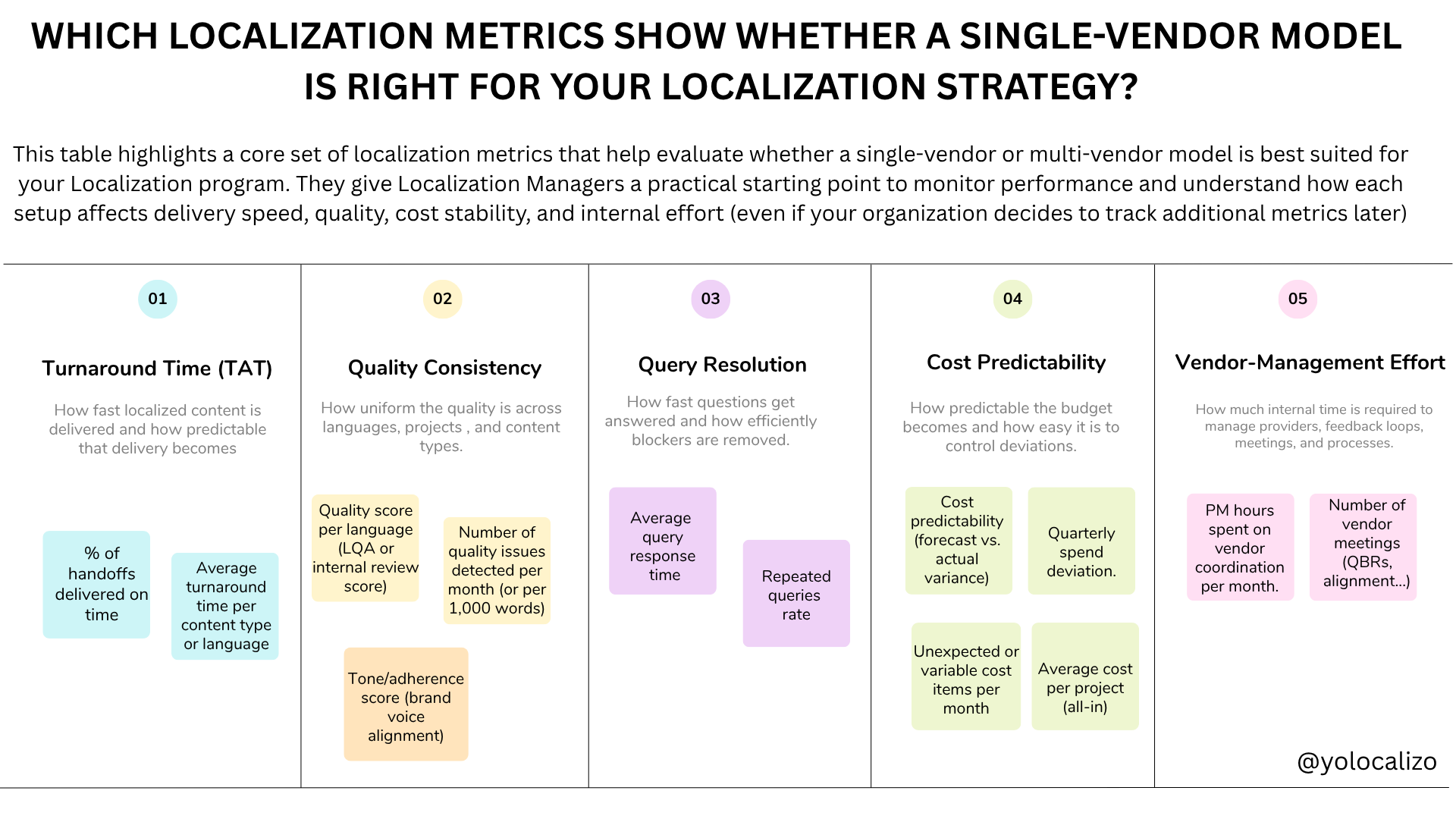





AI is not eliminating localization. But it is removing the illusion that execution alone is enough.
Layer 1 accuracy, delivery, quality was our playfield. Now AI scales it faster and cheaper. And when value is framed only around execution, the conversation shifts to cost and headcount.
Meanwhile, executives focus on retention and growth.
That’s Layer 2 cultural impact.
In the age of AI, localization must operate in both.